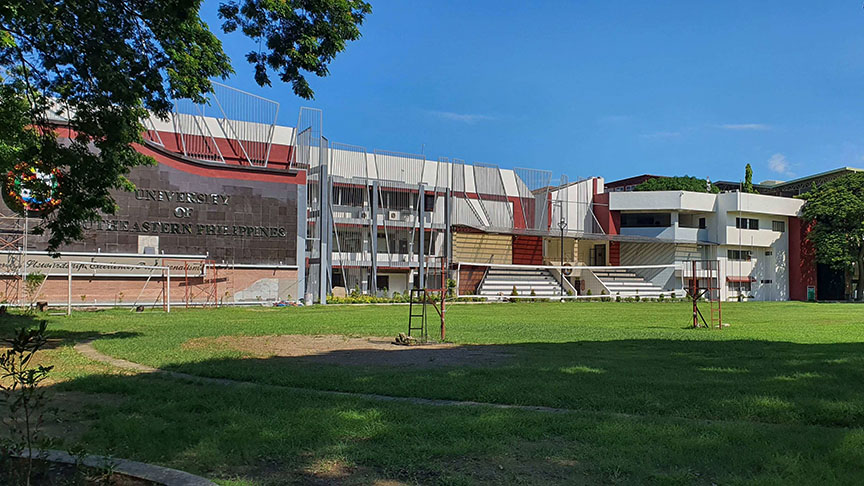DAVAO CITY (MindaNews / 28 July) – The newly-established Legal Aid Center of the state-run University of Southeastern Philippines-School of Law (USEP-SOL) in Davao City will help increase access to justice for “those who have less in life.”
 The University of Southeastern Philippines. Photo from the USEP website
The University of Southeastern Philippines. Photo from the USEP website
Lawyer Rogelio Largo, USEL-SOL acting dean, said during the virtual launch on Tuesday that the center, established two years after the School of Law was opened, was more in keeping with the university’s justice mission to address issues concerning access to justice while at the same time equip its law graduates with practical experience in the legal profession.
“There is a growing perception that law schools in the country, with few exceptions, are more concerned about producing bar passers. They exert very little effort in making their graduates practice ready and, worse, they failed to contribute anything to address access to justice issues,” he said.
Largo added that he believed that as “gatekeepers of the legal profession,” law schools in the country also play an important role in ensuring that access to justice is made a more central priority, this being the “fundamental pillar” and the “measure of how far we have matured and how caring and compassionate we have become as a society.”
“That is the reason why our law curriculum is replete with social justice and clinical legal education subjects, all aimed at exposing our students to social justice issues and increasing their understanding of and concern for those who have less in life,” he said.
He added that the clinical legal education program (CLEP) would help produce not only bar passers but also ethical competent and practice-ready lawyers.
Under the Revised Rule 138-A of the Supreme Court, a law student “must now be certified to be able to engage in the limited practice of law.”
Section 3 provides that “a law student shall apply for and secure a Level 1 or 2 Certification, as the case may be, in order to be permitted to engage in any of the activities under the Clinical Legal Education Program of a law school. The basic distinction between the two levels involve the minimum academic requirement the law student has successfully completed: for Level 1 Certification – first-year law courses, while for Level 2 Certification – third-year law courses.”
Josefe Sorrera-Ty, commissioner of the Legal Education Board, said the university’s legal aid center helps ensure that the goals of legal education will be achieved, particularly promotion and advancement of justice.
“It will also ensure that there will be an increased awareness of the needs of the poor, deprived, and oppressed sectors of society not only among law students but also among all supervising lawyers and volunteer lawyers who will be working with you in the legal aid center,” she said.
Ethan Geary, deputy country representative for The Asia Foundation in the Philippines, said that access to legal services continues to be a pain across the Philippines with the need for accessible legal services and more lawyers.
He said 2,787 lawyers of the Public Attorney’s Office were servicing 109 million people as of 2020 while the inflow of new cases per year for the past 10 years average 800,000, excluding backlog carried over the previous years.
“The center allows more inclusive access to justice, which in turn, contributes to the rule of law for the realization of the constitutionally guaranteed rights. This is essential to a well-functioning democracy and its importance cannot be overstated,” Geary said.
The center will help provide practical trainings for its law students since it will offer an opportunity for students to enhance their lawyering skills in a live client setting, get a deeper understanding of the people living in poverty, and inculcate critical consciousness imbued with a concern for social justice, according to Largo.
“The study of the law should not be confined within the law school and our students should never be restricted to the cold facts in the landmark cases that are discussed in the classroom. They have to be exposed to real life issues and situations, and have to experience first-hand, how the law in all its grandeur provides solutions to legal problems,” he added.
Dr. Lourdes Generalao, university president, said that the center aims to provide free legal service for the public and direct the skills of the students to contribute to the society.
“We believe that the establishment of the legal aid center is truly essential, especially that we are serious in delivering our mission that is based on a set of core values meant to promote the dignity of each person regardless of economic and social status for a just society,” she said.
Generalao said the university is committed to have significant contributions to the cause of peace and promotion of inclusive growth. (Antonio L. Colina IV / MindaNews)
